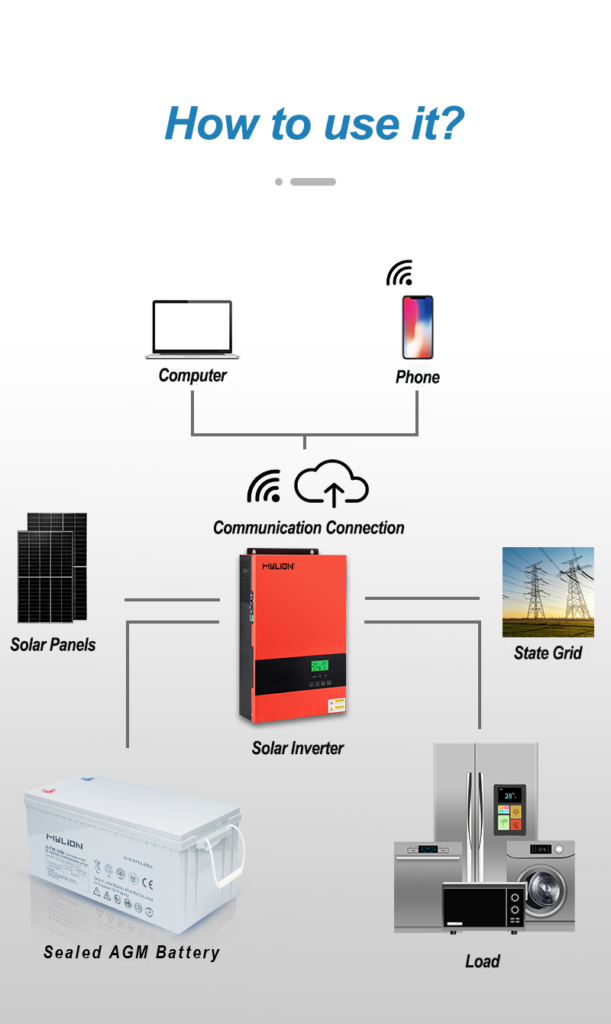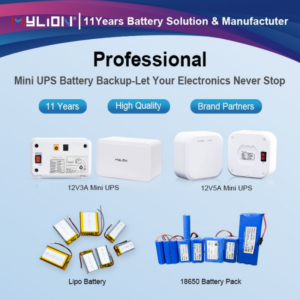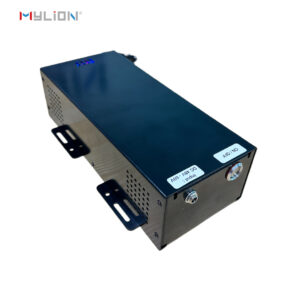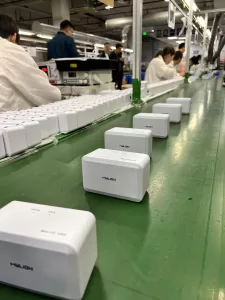Independent photovoltaic power generation
Independent photovoltaic power generation is also called off-grid photovoltaic power generation. It is mainly composed of solar cell components, controllers, and batteries. To supply power to the AC load, an AC inverter needs to be configured. Independent photovoltaic power stations include village power supply systems in remote areas, solar household power supply systems, communication signal power supplies, solar street lights and other photovoltaic power generation systems with batteries that can operate independently.

Grid-connected photovoltaic power generation
Grid-connected photovoltaic power generation means that the direct current generated by solar modules is converted into alternating current that meets the requirements of the mains grid through the grid-connected inverter and then directly connected to the public grid.
It can be divided into grid-connected power generation systems with and without batteries.The grid-connected power generation system with battery is schedulable and can be integrated into or withdrawn from the power grid according to needs. It also has the function of backup power supply, which can provide emergency power supply when the power grid is cut off for some reason. Photovoltaic grid-connected power generation systems with batteries are often installed in residential buildings; grid-connected power generation systems without batteries do not have the functions of dispatchability and backup power, and are generally installed on larger systems.Grid-connected photovoltaic power generation has centralized large-scale grid-connected photovoltaic power stations, which are generally national-level power stations. However, this kind of power station has not developed much due to its large investment, long construction period and large area. Distributed small-scale grid-connected photovoltaics, especially photovoltaic building- integrated photovoltaic power generation, are the mainstream of grid-connected photovoltaic power generation due to the advantages of small investment, fast construction, small footprint, and strong police support.

Distributed photovoltaic power generation
Distributed photovoltaic power generation system, also known as distributed power generation or distributed energy supply, refers to the configuration of a smaller photovoltaic power supply system at the user site or near the power site to meet the needs of specific users and support the operation of the existing distribution network. , or satisfy both requirements.
The basic equipment of the distributed photovoltaic power generation system includes photovoltaic cell components, photovoltaic square array supports, DC combiner boxes, DC power distribution cabinets, grid-connected inverters, AC power distribution cabinets and other equipment, as well as power supply system monitoring devices and environmental monitoring devices device. Its operation mode is that under the condition of solar radiation, the solar cell module array of the photovoltaic power generation system converts the output electric energy from solar energy, and sends it to the DC power distribution cabinet through the DC combiner box , and the grid-connected inverter converts it into AC power supply. The building itself is loaded, and excess or insufficient electricity is regulated by connecting to the grid.







